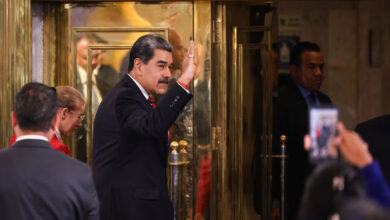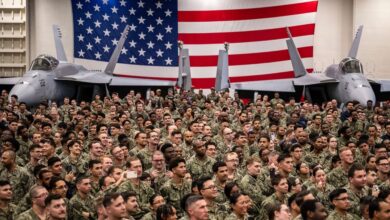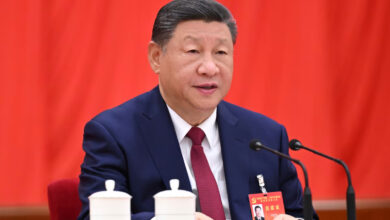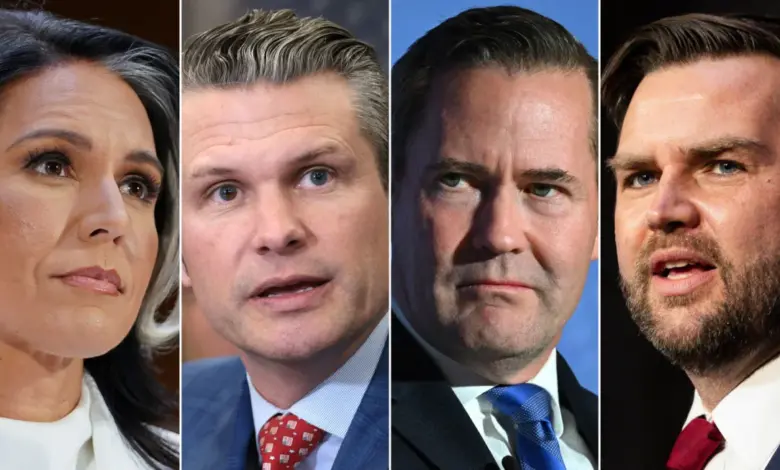
Now, a collection of grunts, foot soldiers and young officers who carried out rather than planned America’s so-called global war on terror are among Trump’s top advisers and officials.
Vice President JD Vance, Defense Secretary Pete Hegseth, national security adviser Mike Waltz, and Director of National Intelligence Tulsi Gabbard were all low- to mid-ranking soldiers when they deployed to Iraq and Afghanistan. Only Waltz, a former Green Beret, is over 50.
Together, they form a key component of Trump’s national security team — and represent a generation of younger veterans that is often described as disillusioned, inherently skeptical of traditional institutions that many see as having failed them across years of inconclusive wars in the Middle East.
It’s a worldview that maps neatly onto Trump’s messaging, including his stated reluctance to using the American military abroad and his broader distrust of government agencies and the so-called deep state.
Many of Trump’s appointees drawn from the global war against terror ranks — Gabbard and Hegseth in particular — have faced intense criticism from both sides of the aisle that they are underqualified for cabinet-level roles, jobs that have traditionally been seen as requiring experience either conducting strategic foreign policy oversight or having leadership over a larger organization.
But both have argued that their experience on the frontlines has given them a keen understanding of the downstream impact of policy decisions made in Washington.
This past week, Hegseth and Vance’s prominent roles were on full display at a NATO meeting in Brussels and an international security conference in Munich. Both offered messages that bore the hallmarks of Trump’s populist foreign policy. Hegseth, an Army veteran, called for Europe to “own responsibility for its own security” and demanded that NATO partners increase their defense spending.
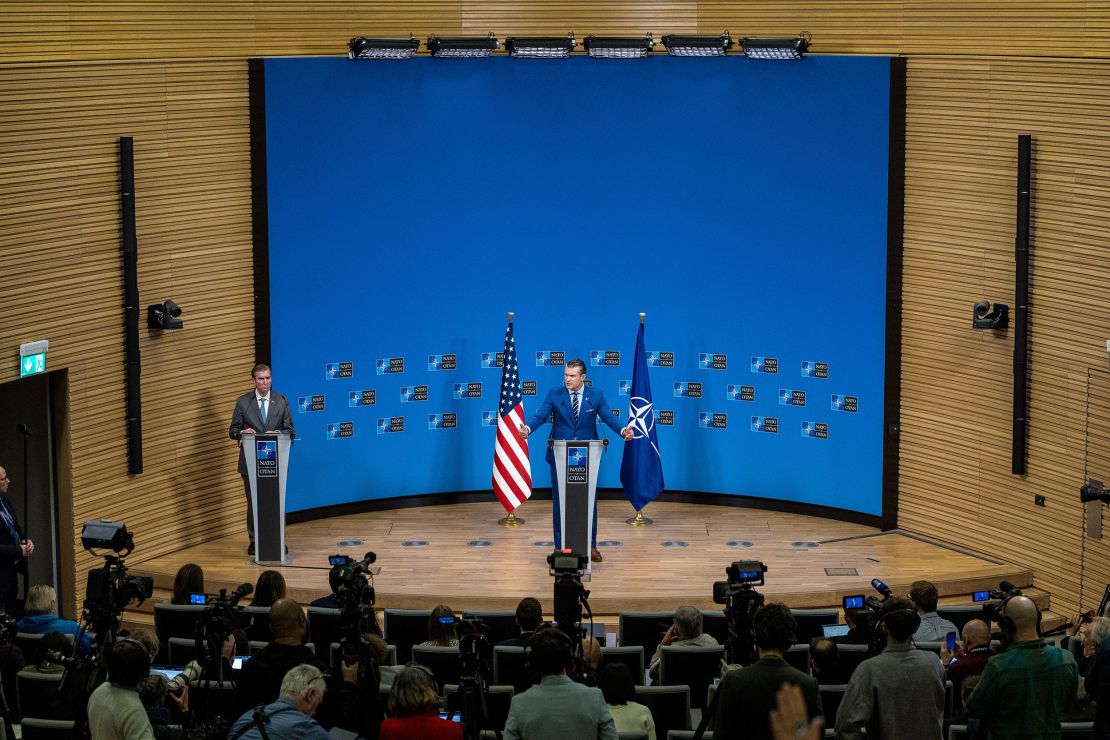
Meanwhile, Vance, who served in the Marine Corps, delivered a blistering speech to European allies that downplayed the threats from Russia and China and accused European democracies of suppressing free speech and refusing to work with hard-right parties — a speech that Germany’s Defense Minister Boris Pistorius called “unacceptable.”
‘Sent to war on false pretenses’
Former veterans in Congress, both Democrats and Republicans, acknowledge that GWOT veterans can be uniquely powerful messengers for broader social frustrations.
“Politically, global war on terror veterans are more skeptical of politics than not (and they) are folks who realize that we were in many instances sent to war on false pretenses and felt like the system that was supposed to provide checks and oversight failed not just once, but over and over again,” said Democratic Rep. Jason Crow, a former Army Ranger who served three tours of duty in Iraq and Afghanistan.
“The link” with the broader American electorate, Crow said, “is deep frustration of broken promises and being led astray — and whether that is economic frustration, the fact that upward mobility is a historic low right now … or it could be broken promises in being led astray on the war on terror.
“In both of those instances, it was our institutions and our system letting people down … and so that frustration is real.”
Veterans of these campaigns have a unique moral authority to condemn traditional political elites, said Allison Jaslaw, an Iraq veteran who leads a GWOT veterans’ awareness organization in Washington, DC. While this generation of veterans has struggled with suicide and PTSD, the politicians “who are responsible … aren’t touched by it,” said Jaslaw. “We have a position of authority that puts us in a slightly different place.
‘Salute and execute’
In Trump’s first administration, a series of acting and retired three- and four-star generals — such his first defense secretary, Jim Mattis; Chairman of the Joint Chiefs Gen. Mark Milley; or his chief of staff, John Kelly — often frustrated the president with their efforts to temper his more transactional or isolationist foreign policy instincts.
Part of the appeal of picks such as Hegseth and Gabbard is the very fact that they weren’t general officers, said one former US official close to Trump’s orbit.
Appointing lower-ranking officers and enlisted soldiers to top positions is both a direct rejection of traditional elites — like four-star generals — and something of an insurance policy for Trump that those officials will do his bidding, this person said.
“He’s looking for people who want to salute and execute,” this person said. “These are people who have had to work for a living in the last five to seven years of their jobs, versus retired generals who sat on boards and were spoon-fed things when they were in the thick of it.”
They also might not come with the same vested interest in the traditional organs of multinational power, like NATO, that Trump’s former suite of generals sought to protect — because they weren’t directly interacting at the leadership level with those organizations as part of their role.
And they may be more skeptical of using US troops to intervene in hotspots around the globe, conflicts from which Trump famously sought to withdraw American troops during his first administration. The majority of global war on terror veterans say the wars in Iraq and Afghanistan were not worth fighting, according to Pew research.
“The reason that I’m so outspoken on this issue of ending these wasteful regime-change wars is because I have seen firsthand this high human cost of war and the impact that it has on my fellow brothers and sisters in uniform,” Gabbard said in 2019, while still a member of the Democratic party. “I will do anything and everything that I possibly can to stop sending our men and women in uniform into harm’s way, fighting in these wasteful, counterproductive wars.”
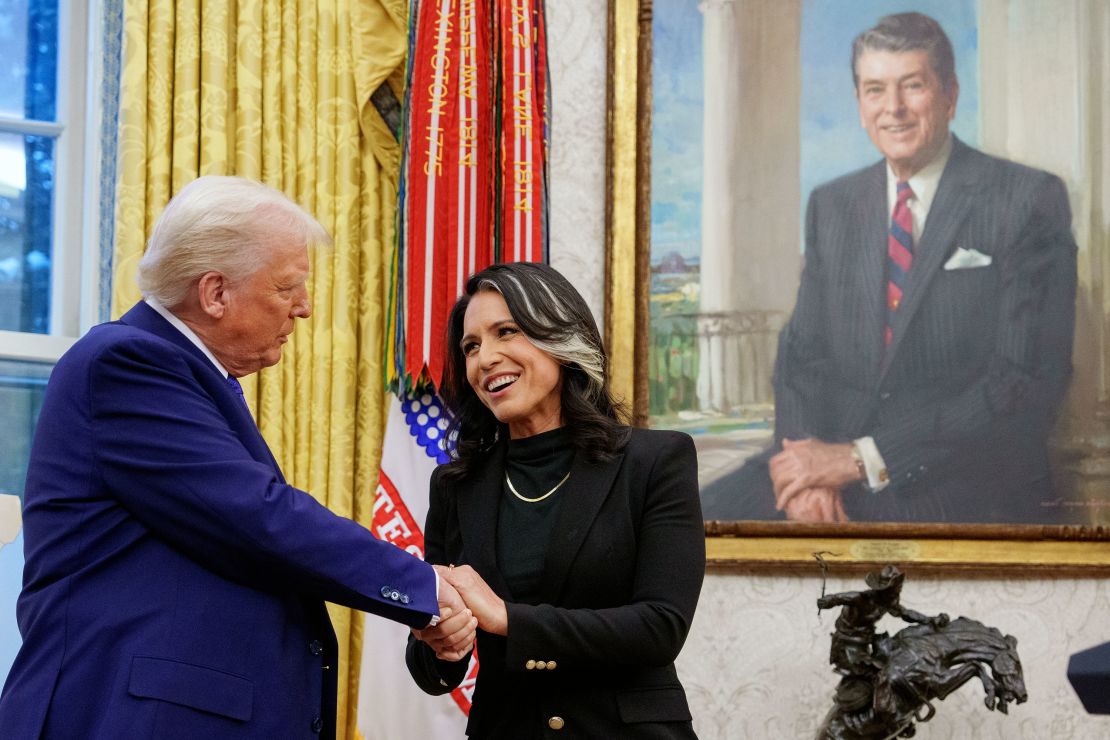
That shouldn’t be confused with a shared sense of isolationism, said Rep. Dan Crenshaw, a Republican and former Navy SEAL officer, noting that Trump deployed additional troops to Syria to fight ISIS in the early days of his first administration.
“It’s not as if Trump didn’t use the military forcefully,” said Crenshaw. But political leaders in Washington have long failed to articulate the reasons for the war in Afghanistan — “no more 9/11s,” he said — and “that’s why the American people get tired over these wars — the desire not to be wasteful.”
GWOT veterans, he said, “were begging for more leadership over the years.”
Warmongers vs. warfighters
Other GWOT veterans who spoke to CNN emphasized that not all veterans are alike, either politically or experientially, and several drew sharp distinctions between the service of different Trump administration officials. Deployments varied dramatically across the years in the level of violence seen by service members, and within their own subculture, GWOT veterans are famous for internecine fighting over the legitimacy of other veterans’ service.
Waltz is seen by many on both sides of the aisle as a relative institutionalist compared to the other three, said Seth Lynn, a retired Marine Corps officer who now runs a nonprofit that helps veterans run for public office. That is particularly true when cast against appointees such as Hegseth and Gabbard, who appear to carry an acute grievance against the institution where they once served: the US Army.
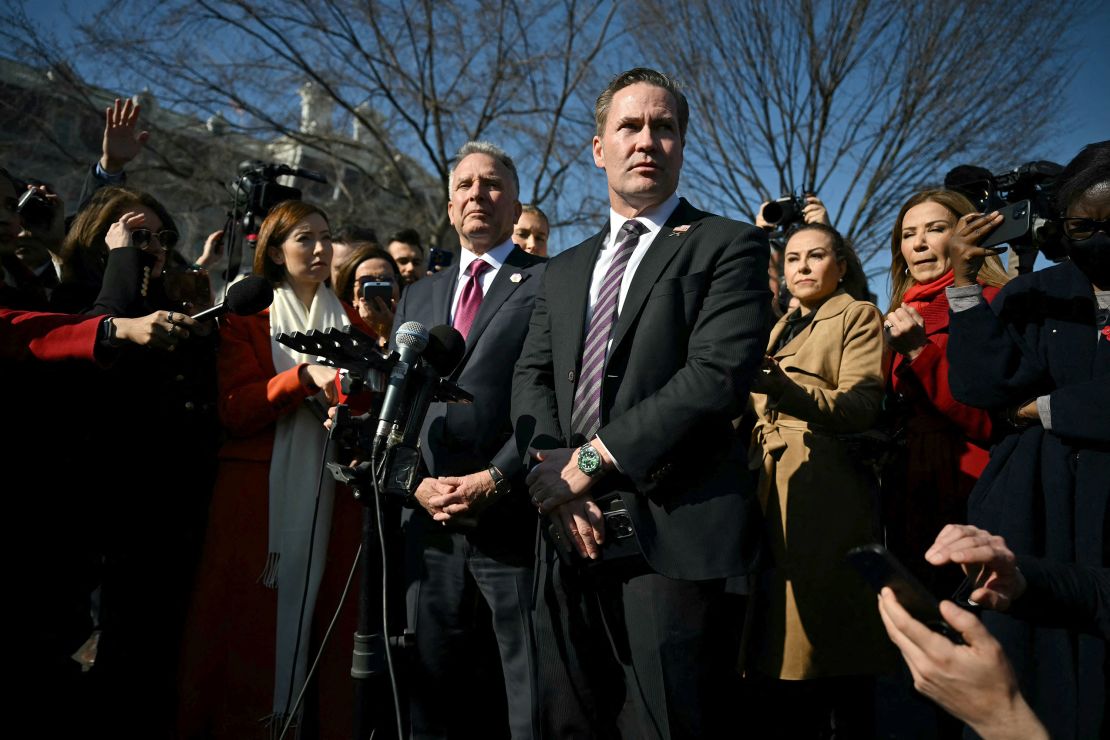
Hegseth has taken fierce aim at the military’s diversity, equity and inclusion policies, while Gabbard has railed against “warmongers” in Washington.
Vance, meanwhile, has made his military service a less prominent part of his political story, which has primarily emphasized his Appalachian family ties, Lynn noted.
Crow and Jaslaw both argued that some of Trump’s choices were exploiting the public trust placed in them as a function of their service — and what academic experts call the “civilian-military divide,” the gap in public understanding of the military in a country with a relatively small all-volunteer force.
Jaslaw pointed in particular to Hegseth’s support for service members accused of war crimes.
CNN reported in 2019 that Hegseth, while working at Fox News, privately encouraged Trump to pardon several convicted war criminals. Trump went on to pardon two service members — Army Maj. Matthew Golsteyn and 1st Lt. Clint Lorance — and restore the rank of Navy SEAL Eddie Gallagher, who had been demoted.
The controversial move went against the advice of then-Defense Secretary Mark Esper and other senior military leaders, who had told Trump that a presidential pardon could potentially damage the integrity of the military judicial system.
But defenders of Gallagher and other service members accused or convicted of war crimes have defended Trump’s move as having the backs of military warfighters who are simply doing the dirty work others won’t.
“The irony is not lost on me when somebody … takes that respect and that reverence and trades on to try to dismantle that system,” Crow said.

